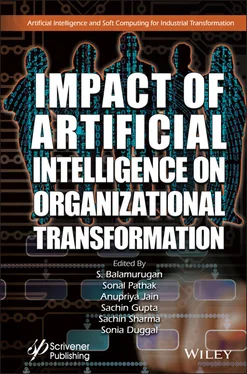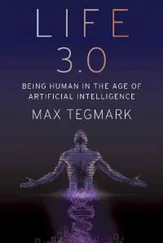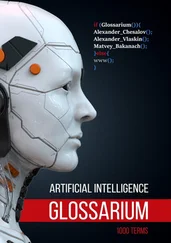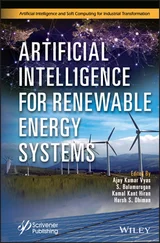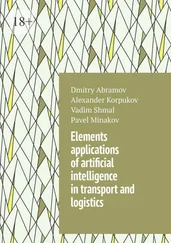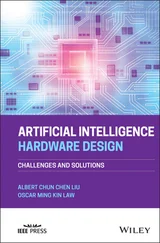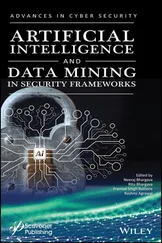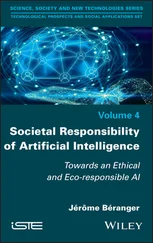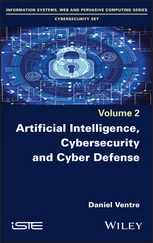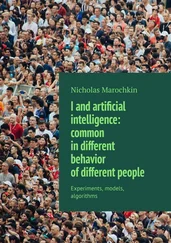Artificial Intelligence for exit management: It is the area where HR professionals have to take exit interviews of those employees who are leaving the organization. Employees who have previously left their exit interviews can be taken through audio and video recording with the help of AI.
Artificial Intelligence for succession planning: It is the process where a lot of studies have to be done to finding the right candidate for the future unoccupied position. As traditional succession planning process holds out of human error. AI-based succession planning more suitable to find out the perfect fit for the future vacant position.
4.4.1 Symbiotic Relationship Between Artificial Intelligence and Human Resource Profession
The term symbiosis is associated with the discipline of science, where living organisms exhibit interdependence for their survival and flourishing. During this relationship, both the organisms gain equal benefits. Similarly, the researchers are focusing on the relationship between AI and HR professionals. Figure 4.5describes the prediction by Human Resource Professional for involvement of artificial intelligence. As per the above synthesis, the impact of AI on the HR profession is clear, but for another part (AI), benefits are observed as the popularity of innovative technology, the establishment of new software companies, increased employability in the field of Software Developer, the establishment of IT based technical institute, etc. As it is clear that both the components are getting equal benefits by implementing AI-based technology for the HR professionals, so it is a symbiotic relationship between both the components. ML, AI-based technology, and automation are complements for every HR professional.
The symbiotic relationship of human empathy and decision, collectively with the dominant analytical and advance predictive abilities of AI, is a formula for success in HRM.
AI role in HR domain for companies is important but no one yet mentioned AI application in removing biases in performance appraisal and management of talent because biasness has been harming the organization at extreme level up to the attrition of talent [16, 17].
There is a serious necessity that HR professionals start thinking deliberately about their roles and essentially to be more data-driven to stay applicable to future organizations. For this, there is a need to change the culture of decision-making about employees and their work.
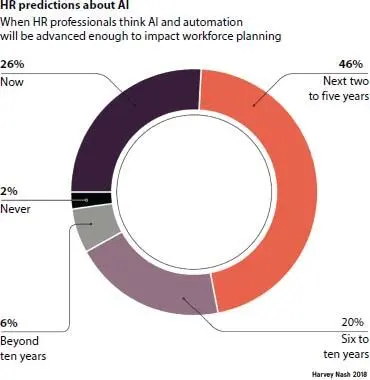
Figure 4.5 Forecasting of Human Resource Professional.
Note: Forecasting of Human Resource Professional about the involvement of AI in percentage. It depicts that the next 5 years for the AI boom in HRM, and gradually, the use of AI will decrease. Source: Harvey Nash (2018), https://www.raconteur.net/hr/ai-hr-human.
4.5 Limitations of Artificial Intelligence in HRM
Even though AI is beneficial in all the aspects of HRM, it still has some limitations like other advanced technologies and machines which are enumerated below.
Unable to accommodate differences: Application of AI in the recruitment and selection process is not free from blemishes. The robot fails to identify the finer nuances in applicants resume; hence, the risk remains that some good quality candidates could be rejected at the initial level itself. The interview should be taken by human expert as they are capable of judging even the nonverbal responses of the applicants such as nervousness, confidence, sincerity honesty, and transparency of the personality. AI-based technology may not pick up these cues so efficiently.
Lack of understanding: AI-based systems are usually working on previous data to analyze them and draw some conclusion. AI is capable to provide data that exhibit a specific pattern after crunching big data. AI is not capable of handling the HR functions independently but it can support the decision-making of HR professionals by means of expert systems (also known as Executive Support system).
Lack of human-like sense: It is a well-known fact that AI is smart enough to do work efficiently. But it lacks emotional intelligence which is very important for interpersonal relations. It fails to empathize with “fellow colleague”. Further, AI lacks the qualities of creativity and innovation which human beings are endowed with.
System dependent: AI is software-based system which is susceptible to system errors. The failure of AI may lead to the failure of entire HR subsystem, causing rampant dissatisfaction among the employees, leading to the increase rate of attrition.
In view of the above discussion, it can be concluded that HRs are an integral part of any organization because it is dealing with live resources. The transformation in HR practices through IT-based technology is responsible for automation. AI is one of the innovative IT-based technologies which have been helping HR professionals to make their task easy. AI is capable enough of handling routine monotonous administrative tasks but it lacks emotional intelligence. Emotional intelligence is a core characteristic of human beings which is not yet possible to be replaced by any other smart technology. However, AI is advance in its feature but human also has own peculiar characteristics which cannot be replaced by any technology. A blending of the analytical ability of AI and human expertise of decision-making can do a miracle in the field of HRM. Ultimately, the collaborative relationship between both human and AI is a wonderful concept to get victory over unwanted pressure of work and data handling. Symbiotic relationship of both AI and HR profession can increase efficiency and reduce biases and uncertainty in HR-related decisions. HR professionals will now have more time to focus on creativity and strategic decision-making in the area of HRM. Those organizations which are embracing AI must understand that it is not jobs but the tasks that are being automated. Organizations should also understand that automated job roles make a new way for job transformation rather than exclusion. Some limitations also exist while using AI in the field of HR. It is expected that both AI and HR professionals will co-exist and complement each other rather than competing with each other. In the end, it can be concluded that the application of AI in the field of HR will yield best results only when it is used intelligently by HR professionals.
1. Milani, L., Rahmati, D., Nurakbarianti, R., von Klitzing, P., Exploring the Impact of Artificial Intelligence (AI) on Human Resource Management (HRM): A Cross-Industry Analysis , The London school of Economics and Political science, Oracle, London, Accessed 15 thApril, 20, 4.30 pm, from https://www.oracle.com/webfolder/s/delivery_production/docs/FY16h1/doc36/AC-20170121-OracleAI.pdf, 2017.
2. Iqbal, M.F., Can Artificial Intelligence Change the Way in Which Companies Recruit, Train, Develop and Manage Human Resources in Workplace?, Asian Journal of Social Sciences and Management Studies. Asian Online J. Publishing Group , 5, 3, 102–110, 2018.
3. Jauhari, A., How AI and Machine learning will impact HR practices, Retrieved 23 rdApril, 20 from https://www.vccircle.com/how-ai-and-machine-learning-will-impact-hr-practices, 2017.
4. Sheila, L.M., Steven, G., Chad, M., Mayank, G., The new age: Artificial Intelligence for human resource opportunities and functions , pp. 1–8, Ernst & Young global limited, U.S. LLP, Accessed 15 thApril, 20 from https://hrlens.org/wp-ontent/uploads/2019/11/EY-the-new-age-artificial-intelligence-for-human-resource-opportunities-and-functions.pdf, 2018.
Читать дальше
